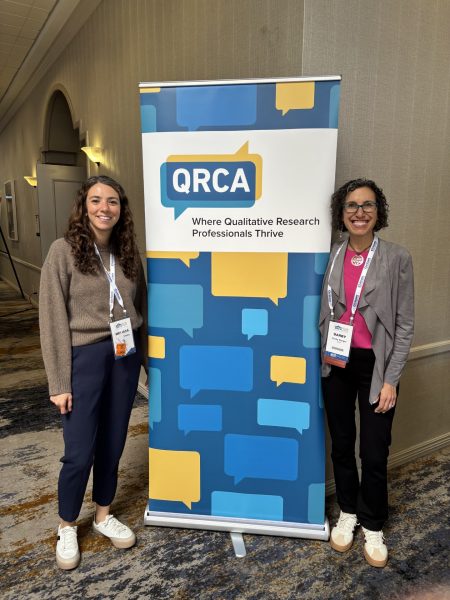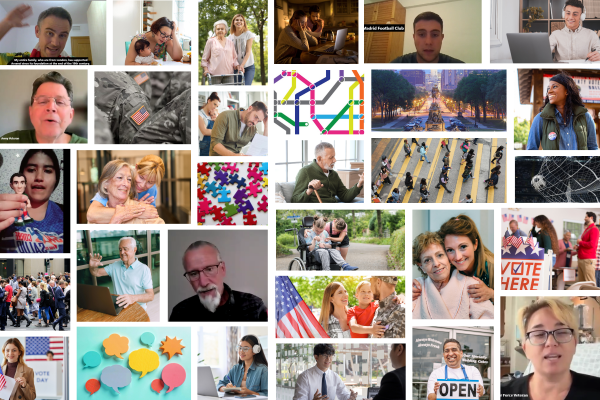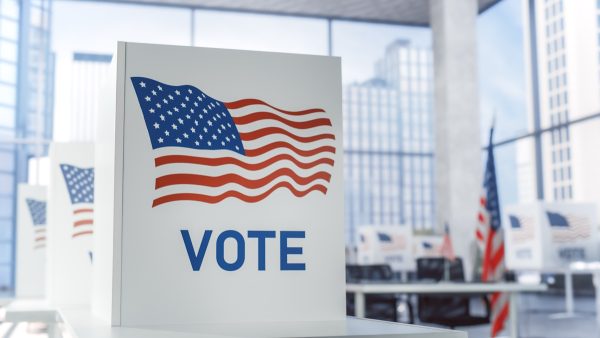As the dust settles from Election Day, new data from the October 2025 wave of the SSRS Economic Attitudes Tracker reveal a troubling undercurrent: Americans across generations, income levels, and political affiliations feel unseen and misunderstood by their leaders — and that frustration is feeding deeper economic anxiety.
These are just some of the great findings from the fourth wave of the SSRS Economic Attitudes Tracker. The full report will be available on November 11, 2025.
Americans Feel Unseen and Misunderstood in Their Economic Struggle
Eight in ten (79%) agree that “politicians don’t understand the economic reality I am living in” with half of Americans (49%) saying strongly agree. This sentiment cuts across every demographic group—showing that frustration with political leaders is both widespread and deeply felt.
- By generation: From young to old, the sense of disconnect is nearly universal (73% Gen Z, 80% Millennial, 82% Gen X, 77% Baby Boomer).
- By economic class: Those in every self-reported class feel unheard (82% lower class, 79% lower-middle class, 78% middle class, 79% upper/upper-middle class).
- By race: Perceptions are consistent across racial groups (80% White, 78% Black, 78% Hispanic, 67% Other).
- By political affiliation: While Republicans are somewhat less likely to agree, a strong majority across the political spectrum share this view (87% Democrats, 82% Independents, 69% Republicans).
One survey respondent summed up the widely perceived disconnect between politicians and the public this way:
“Their salaries are much larger than the little people out here. I don’t see how they could honestly understand our reality when that is not their lifestyle or their worries. They don’t have the same worries as the small working class. I wish that they would live six months in our shoes with having to live paycheck to paycheck and really having to watch their money and their budget and see how then they could really get a feel of what most people go through.”
For many, it’s not just about policy — it’s about empathy. People want to feel that those representing them truly grasp what it means to live on tight margins in today’s economy. They see leaders asking for their votes but not their perspectives — pursuing political points instead of practical solutions.
“If one day they were without a warm meal, without warm water, without even light, they would definitely understand what it is that they should be doing when they’re talking to us people to vote for them.”
Political Dysfunction Deepens Economic Anxiety
In follow-up interviews, participants described growing distrust toward leaders they see as detached from everyday life. Many said the system “works for the powerful,” while ordinary families fall further behind.
The recent government shutdown has amplified that frustration. For many, it wasn’t viewed as a political issue at all, but as another sign that “things aren’t working.” Even those not directly affected expressed concern about ripple effects — from unpaid workers to halted benefits — seeing it as more proof of a system in disarray.
“They can’t get along. To a point where it’s hard to place any trust in them. That respect has been lost. So, so much infighting that I’ve lost confidence. And I wonder, is there anybody who can come in there? A person who, or people who, put the people’s interest first?”
One respondent captured the sentiment vividly:
“Oh boy — less fighting in government leadership that you could actually put your trust in. There’s too much division on both sides, and it’s gotten so out of control that it’s hard to take it seriously anymore. Act like leaders — earn it. Stop demonizing people. Respect has been lost. And if we don’t stop fighting each other, there may not be a country left to fight over.”
These are just some of the highlights from Wave 4 of the SSRS Economic Attitudes Tracker.
The full report will be released Tuesday, November 11, 2025 with detailed findings on public sentiment around the U.S. economy and job market, changes to their own spending behavior, and what Americans say needs to change for confidence to return.
Methodology
Wave 4 of this study was conducted by SSRS on its Opinion Panel Omnibus platform. The SSRS Opinion Panel Omnibus is a national, twice-per-month, probability-based survey. Data collection was conducted from October 16 – October 19, 2025 among a sample of 1,033 respondents. The survey was conducted via web (n=1,003) and telephone (n=30) and administered in English (n=1,007) and Spanish (n=26). The margin of error for total respondents is +/-3.5 percentage points at the 95% confidence level. The total sample design effect for this survey is 1.34. All SSRS Opinion Panel Omnibus data are weighted to represent the target population of U.S. adults ages 18 or older.









